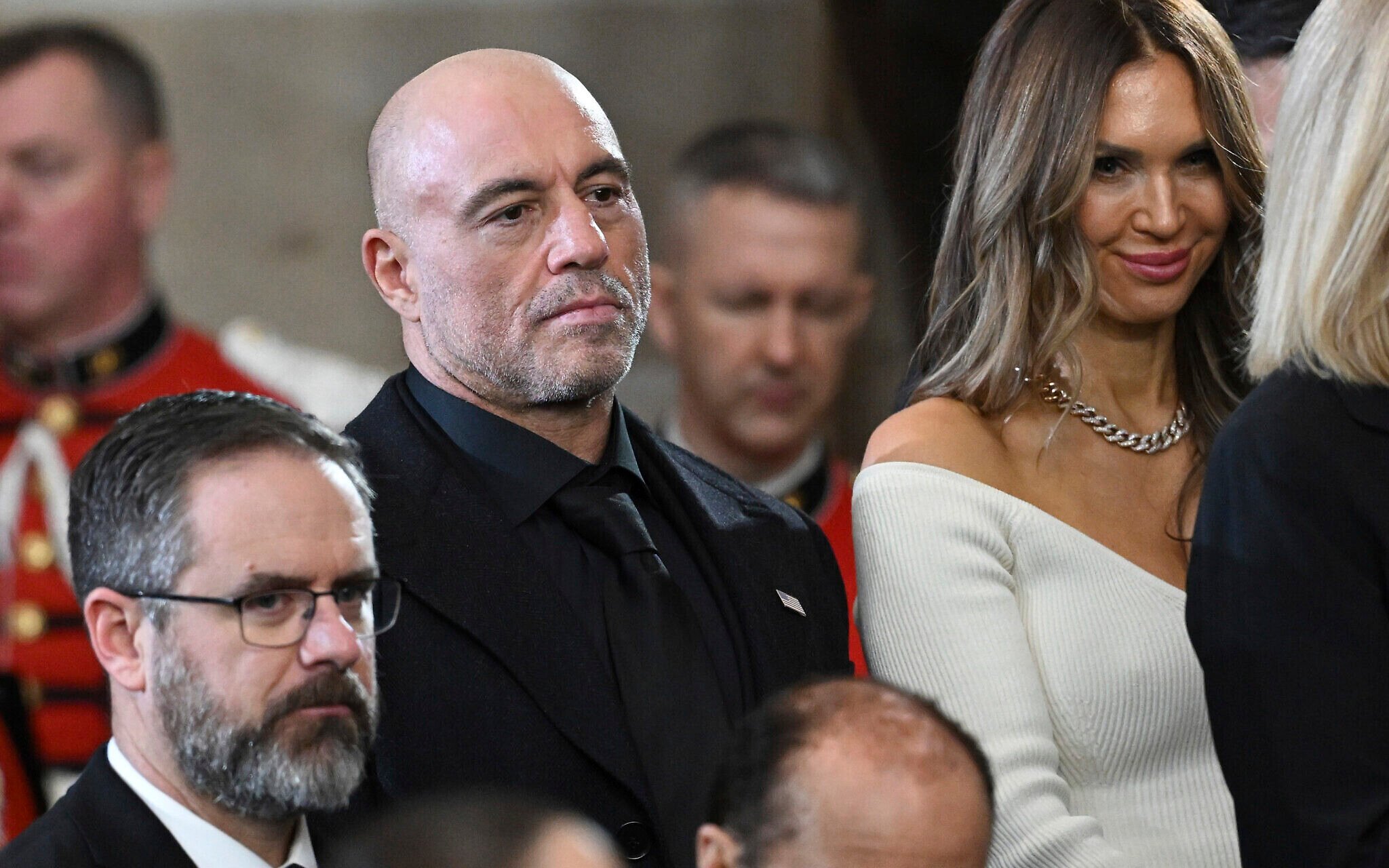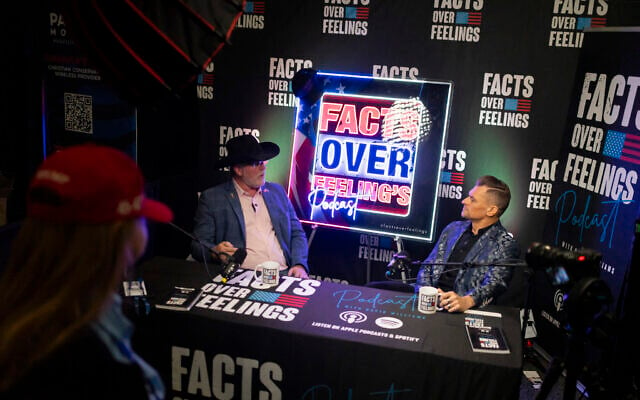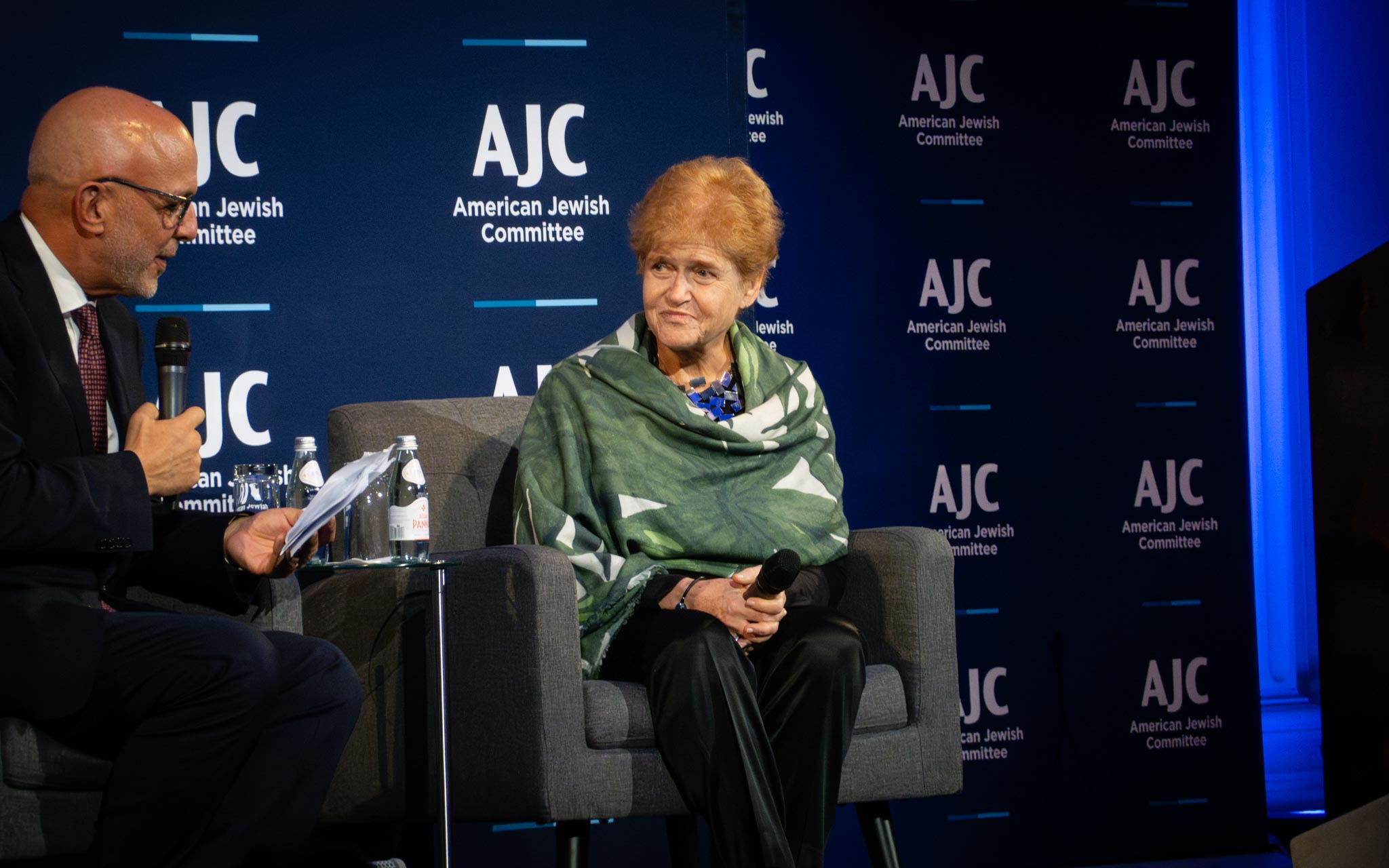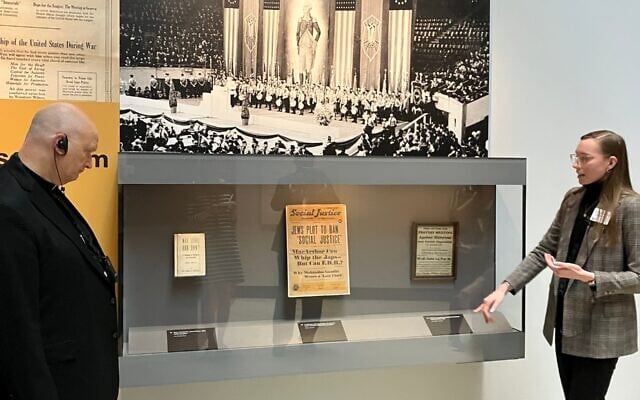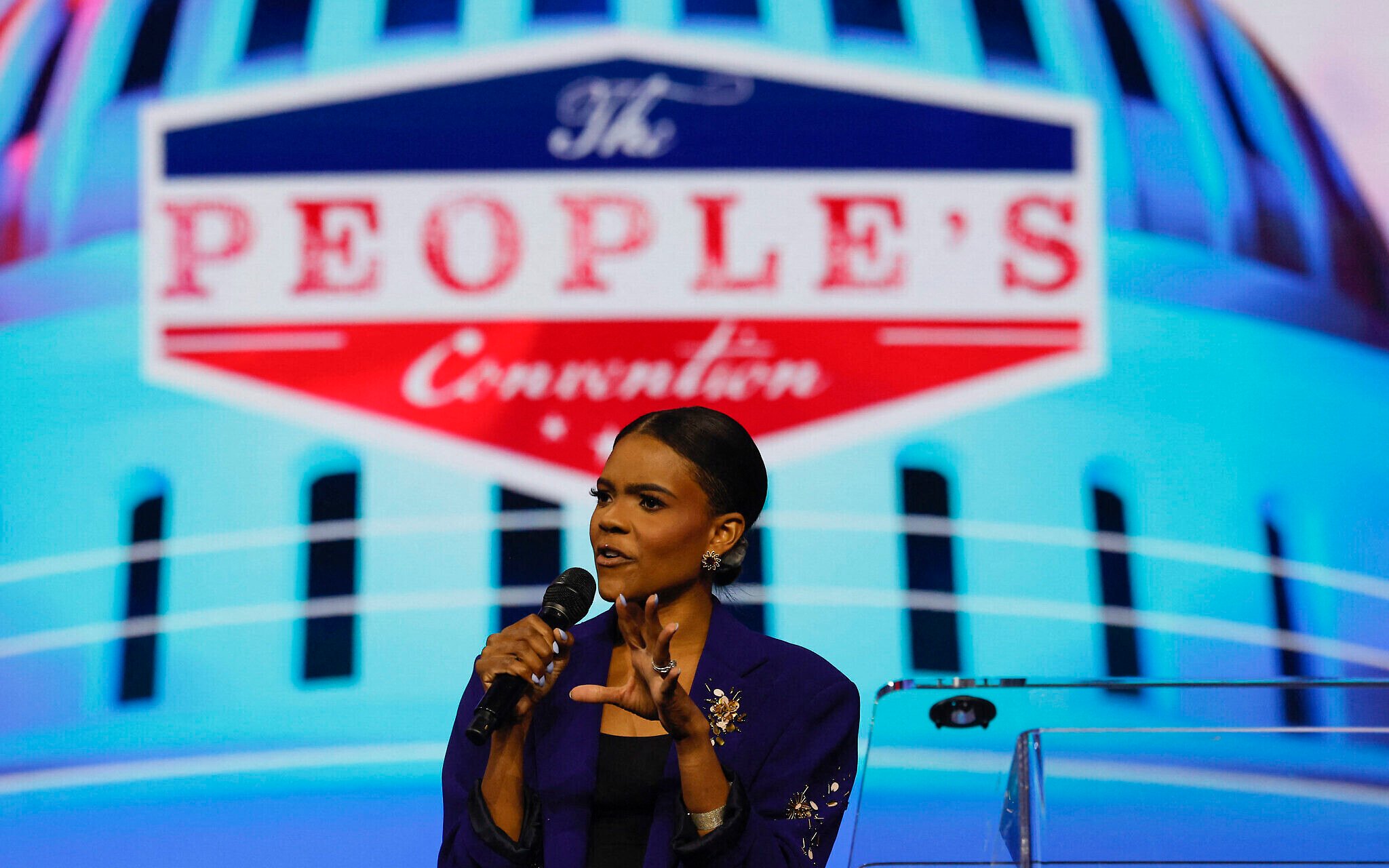

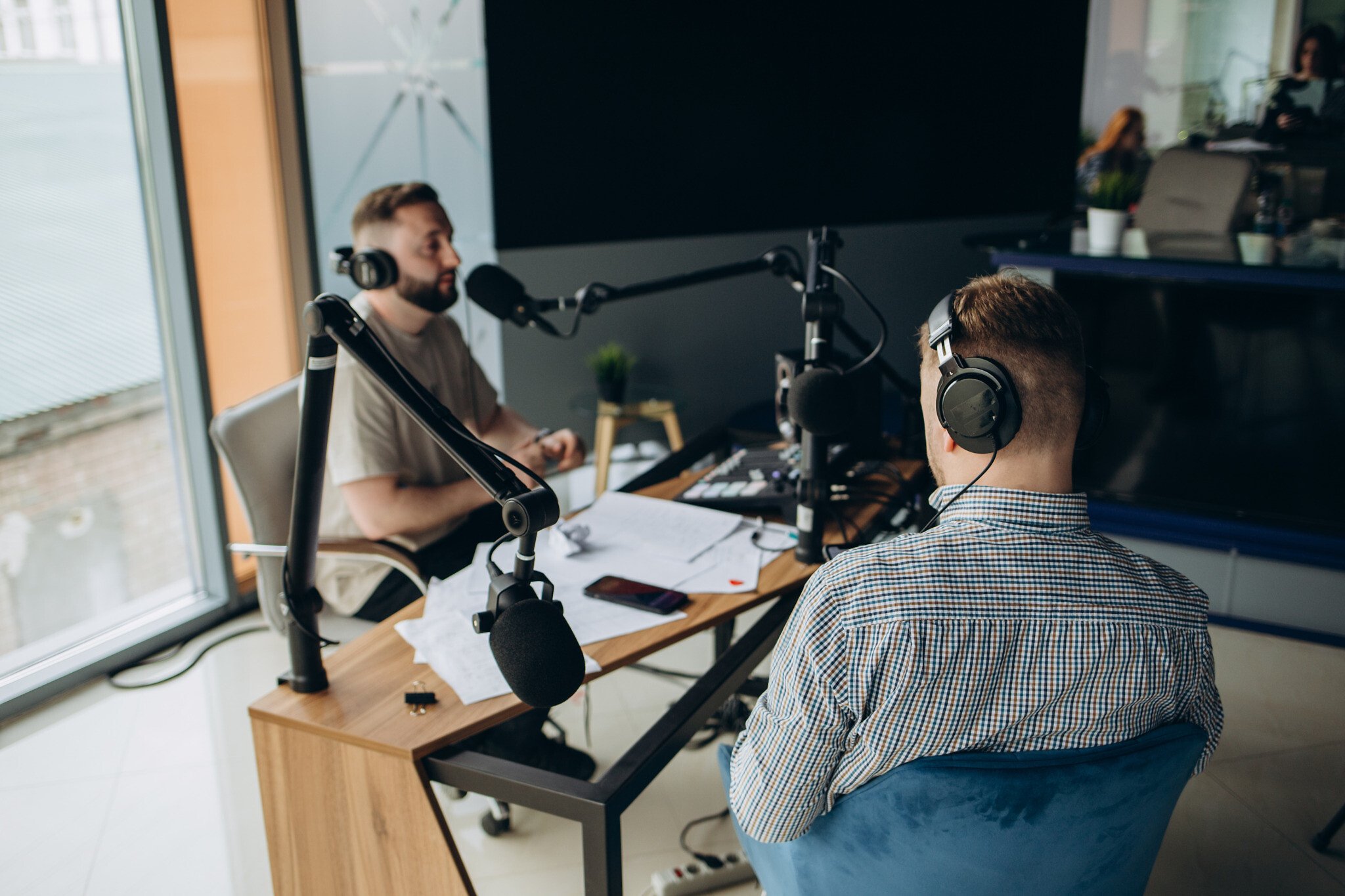
Earlier this year, the journalist Douglas Murray and the comedian Dave Smith quarreled on the world’s most popular podcast about the role of expertise in public discourse, an argument that became a flashpoint in a wide-ranging debate about alternative media.
On “The Joe Rogan Experience,” Murray, a veteran reporter, argued that experts should receive a primary platform in public dialogue. Smith, who has made a name voicing his libertarian geopolitical worldview on podcasts, YouTube videos, Twitch streams and other forms of non-legacy media, disparaged experts and argued that everyone should have an equal voice.
“I’m a free American. I can talk about what I like to,” Smith said. “The expert class hasn’t done a great job.”
“Everyone is free to air their views, but it does not mean that everyone who sounds off on an issue, whether it’s World War II, the war in the Middle East, the war in Ukraine, has an equally valid point of view,” Murray said.
One of the listeners, a history buff, found himself “infuriated” by the whole debate and decided the best way to combat the influencers’ discourse was to meet them on their own turf — long-form podcasts. His nascent show, “Crackpot History,” appears to be the first podcast dedicated to combating historical revisionism on other podcasts.
The new show is part of an evolution that has seen podcasts, livestreaming videos, Substack and other forms of what is termed alternative media increasingly challenge traditional platforms like legacy news outlets. In both realms, the conversation often centers on Israel and Jews.
“It ignited the internet on fire and it was this whole experts versus influencers debate, and the influencers are just running circles around everybody else,” the “Crackpot History” host said of the Smith-Murray debate. “They’re just weaponizing a narrative and ahistoricity and that was the main motivation for this.”
The podcaster, whose first show focuses on the history of Zionism, declined to share his identity publicly because he fears retribution from the “pretty toxic” influencers he criticizes. His anonymity also plays into his approach on the show, focusing on the arguments and avoiding ad hominem attacks.
“They always say, ‘Focus on the argument. Tell me where I’m wrong,’” he told The Times of Israel in an interview. “The only way to really do that is to confront them in the same way that they make their words heard.”
“It has to be long form, it has to be uninterrupted, it has to focus on the details,” he said.
One of the central figures in the Smith-Murray debate was the amateur historian Darryl Cooper, a popular podcaster known for empathizing with history’s bad guys, including Nazi-era Germany. Smith and Rogan, both fans of Cooper, defended him, while Murray accused Cooper of propagating discredited Holocaust denialism.
Cooper launched his podcast with a history of Zionism in 2015. He has said he was inspired by the war against Hamas in Gaza the previous year. He is critical of Zionism, calling the movement a “psychopathology” and a “particularly virulent and dangerous kind of nationalism,” and is hostile to modern Israel, saying Israelis “take joy and satisfaction” in killing.
“Crackpot History” launched in April with a defense of expertise, warning that for many, anti-establishment influencers were seen as more credible than actual experts. The following episodes track Cooper’s history of Zionism, point by point, giving Cooper credit when he got it right and pointing out his shortcomings, similar to peer review for professionals.
The opening episode said, for example, that Cooper omitted sections of the founding charter of the early Zionist group Bilu while quoting the document to argue that the conflict was political and caused by Zionism, not ethnic or religious. It also noted that Bilu was a minor group and that Cooper elided anti-Jewish violence in the Arab world in the 19th century.
Fact-checking Cooper is a lengthy process; his series on the history of Zionism is more than 20 hours long. The host of Crackpot History listens to an episode, takes notes, and compares those notes to primary and secondary sources. Cooper often names his sources, which allows the podcaster to check them.
Sometimes, the process takes longer. In one episode, Cooper referred to a German eugenicist without naming him. The “Crackpot History” host went on a “manhunt,” translating the quote back to its original German, and locating it in an obscure book from 1929. Each episode takes about a month to produce.
Cooper has taken notice and the two have engaged in a back-and-forth argument online about quotes and sources. Cooper did not respond to a request for comment.
“Crackpot History” mirrors the early stages of Cooper’s show. Both were created by dedicated amateur historians, working on their own time, on their first podcast. Both use a similar logo — an image of a Greek-esque bust. The “Crackpot History” host said his only prior experience was a history channel he created on YouTube that he has since taken down.
He has an undergraduate history degree and while he did not work in the field after graduating, he retained his affinity for history, particularly World War II, Israel and, more recently, Ukraine. He described his ideology as “pro-Taiwan, pro-Israel, pro-Ukraine, and pro-West with a capital ‘W.’”
Podcasting, already a major business, has in recent years transformed into a fiery crucible of American ideas. Once primarily an audio storytelling model dominated by news and niche interests, many of the most popular podcasts today instead favor sprawling free-form commentary, debate and discourse on topical issues, a chaotic and noisy answer to legacy media’s op-ed page.
An estimated 130 million Americans listen to podcasts each month, and worldwide revenue is expected to surpass $4 billion this year. YouTube said earlier this year that 1 billion people per month viewed podcasts, which are sometimes filmed as well, on the platform. Prominent media personalities such as Tucker Carlson, Megyn Kelly and Glenn Greenwald have departed traditional media to publish on alternative platforms, including Substack, a forum for independent writers.
Unlike traditional media, the industry lacks standards and gatekeepers. The anything-goes atmosphere is part of its appeal; there is a low bar for entry, creators are beholden to their audiences instead of a parent company, and show hosts can discuss topics anathema to mainstream media. Some in the field have backed regulations for podcasts, but there are few guardrails in place.
Legacy media outlets “certainly have their flaws, but at least they have editors, corrections processes, and professional standards,” said Jonah Cohen, director of communications for CAMERA, a nonprofit monitoring group that fact-checks mainstream media for anti-Israel bias.
“With podcasts and Substack, there’s no standards desk to appeal to. That makes them especially fertile ground for conspiracy theories, Holocaust denial, and delusional anti-Israel tales,” added Cohen.
Last year, the Anti-Defamation League warned of hate speech on podcasts after the popular “Fresh and Fit” show saw guests praise Hitler and call for killing Jews.
The podcasting sphere is awash in extreme ideologies. Popular commentators on the right range from libertarians like Smith to the former UFC mixed martial arts star Jake Shields, an unabashed antisemite and Holocaust denier who is friendly with Smith and has hosted Smith on his podcast.
Cooper is a prominent figure in the media ecosystem. He has appeared on “The Joe Rogan Experience” and “The Tucker Carlson Show,” which are among the top podcasts worldwide. On Substack, Cooper is the top author in the history field, with more than 170,000 paying subscribers.
Cooper made headlines last year when he told Carlson — who hailed him as “the most important historian in the United States” — that Winston Churchill was the “chief villain” of World War II and claimed, falsely, that the Nazis had killed millions in concentration camps by accident.
“They launched a war where they were completely unprepared to deal with the millions of prisoners of war,” he said. “They just threw these people into camps and millions of people ended up dead.”
That interview drew a rebuke from the Biden White House. Dani Dayan, the head of Israel’s Yad Vashem Holocaust museum and memorial, condemned the statements as historically inaccurate, dangerous and antisemitic.
Cooper is dedicated to his research, reads deeply, and is well-versed in biblical and Jewish history. In a podcast interview last year with Noam Dworman, the owner of the Comedy Cellar in New York City, Cooper called out antisemites for misusing sections of the Talmud to attack Jews, showing a familiarity with the text. He has posted in support of Nazism to his hundreds of thousands of followers on X, but walked back some of the posts, acknowledging that he doesn’t “use the internet in the most intelligent way.” This week, he chastised Jews for not accepting Jesus Christ as the messiah.
Despite accusations that his Holocaust revisionism is helping propagate hatred of Jews, Cooper says he is opposed to what he terms all-consuming “vulgar” antisemitism, as opposed to “moderate” antisemitism.
“Hatred will ruin our souls whether or not our target has it coming. That is not to say that Jews deserve your hatred, only that you shouldn’t indulge it even if you think they do. Even if you’re right, it won’t save you,” he wrote earlier this year. “I’m done indulging or ignoring low-IQ vulgar antisemitism. The goal of these people is to conscript everyone else into their conflict, and they won’t be using me or my platform to do it.”
At the same time, Cooper has defended the Holocaust denier David Irving, used Irving as a source, and deployed arguments made by Irving. In a landmark 2000 ruling, a London court found that Irving had deliberately distorted evidence to deny the Nazi atrocities, after he attempted to sue historian Deborah Lipstadt for libel.
The legal battle was sparked by Lipstadt’s 1993 book, “Denying the Holocaust,” which tracked Holocaust deniers’ evolving methods, including by spreading falsehoods in pamphlets, college newspapers and faux academic journals.
Lipstadt told The Times of Israel she had not been following Cooper closely, but warned that podcasts were a dangerous new medium for spreading long-debunked myths about the Holocaust, allowing deniers to forge personal connections with impressionable listeners.
“There is an intimacy and, ‘Hello, I’m just talking to you,'” Lipstadt said of podcasts. “It’s a new iteration of what we’ve been seeing and what we’ve been fighting for a long time. It’s a modern iteration, but I doubt that anything [Cooper] says in there hasn’t been said by David Irving.”
Dworman, who closely tracks antisemitism in alternative media, said he had had a cordial relationship with Cooper that later “turned sour” as Cooper “began to dig in on all this David Irving stuff.”
“I began to ask him, ‘Where did you get this? Where did you get that? And he wouldn’t answer anymore,” Dworman said. He believes the far-right media landscape represented a “reversion” to past antisemitism, citing as an example the early 20th-century antisemitic radio broadcaster Father Coughlin. He said he was concerned that some of the far-right media personalities have influence in the Republican party leadership.
“They’re going to normalize and give the mantle of respectability to things which we thought were gone and done with,” he said. “It really is the reanimation, like the Frankenstein monster is coming back to life, of age-old conspiracies and ideas about Judaism that are now becoming mainstream.”
Lipstadt supported amateurs fact-checking each other if the critics use verified sources, although she stressed that there are not “two sides” to the Holocaust debate. In the past, she refused to debate deniers because she believed the discussions gave viewers the impression that there were legitimate disputes about whether the Nazis carried out the genocide.
“I wouldn’t spend my whole life fact-checking these guys, but I think there’s something worthwhile. It doesn’t hurt to show how they lie, how they make up, how they falsify history,” she said.
The “Crackpot History” host said he didn’t see an issue with amateurs fact-checking other amateurs, or his defense of expertise, despite being a non-expert himself.
“Two can play that game. Somebody who is educated on something doesn’t necessarily need to be a college lecturer to be able to counteract falsehoods,” he said.
“Crackpot History” started with taking down Cooper, but the host plans to continue the series by fact-checking other alternative media figures with wide followings. He named Candace Owens, Carlson and Theo Von as some of the other prominent voices spreading disinformation about Israel. Owens, who has millions of followers online, has also defended the Nazis.
“Everybody’s talking about what’s happening in Israel,” he said. “This issue is punch after punch after punch.”
“They weaponize history, weaponize narratives, and use that to impact real-world events on the ground,” particularly in flashpoints such as Israel, Ukraine, Taiwan and Iran, he said. “I think that these people have real-world impact on the zeitgeist, and this is the pushback and the fact check to that.”
The discourse came to the fore again last week when Owens and Ian Carroll, another former Rogan guest, tied the killing of Charlie Kirk to Israel, with no evidence. Owens and Carroll have a combined following of more than 8 million on X alone.
The “Crackpot History” podcaster and Lipstadt were unfamiliar with each other’s work, but have found themselves on a similar track, seeing the denial of history as a threat to the broader postwar order. Lipstadt wrote in 1993 that Holocaust denial “poses a threat to all who believe that knowledge and memory are among the keystones of our civilization” and was often part of a neo-fascist agenda. The opening episode of “Crackpot History” warned that, absent a grounded consensus on history, “the trust that holds society together at scale crumbles apart.”
With only five episodes and an intro published so far, Crackpot History has yet to build a following with anything close to the millions of listeners that Cooper and others of his ilk reach. The host acknowledged that he was barely denting the flood of misinformation online, calling the effort an “uphill battle,” but hopes his podcast will give a growing number of people a way to call out inaccurate claims.
“They’re given a tool in their tool belt to say, ‘Actually, this completely dismantled that claim. Go take a look,'” he said. “And maybe that will convert some people who decide to listen.”


